National
2019: Why I rejected electoral amendment bill – Buhari writes National Assembly
– President Buhari once again declined assent to the Electoral Amendment Bill
– The president said he cannot sign the bill at this time when the 2019 general election is already close
– He added that signing the bill this time will create crisis
– He gave the legislators the condition that he will sign the bill if they state that the bill will come into effect after the 2019 elections
President Muhammadu Buhari, on Friday, December 7, for the fourth time, rejected assent to the Electoral Bill which was passed to him to sign into law by both the Senate and the House of Representatives.
The president who has written to the National Assembly said he cannot sign the Electoral Bill into law at this time that the country was preparing for the 2019 general elections, Vanguard reports.
He said that he can only assent to it after next year’s elections, adding that if done now, it would end up causing uncertainty and crisis in the country.
In the letter dated 6th December, 2018 and addressed to both the Senate president, Bukola Saraki and speaker, House of Representatives, Yakubu Dogara which was received on December 7, President Buhari said that he would only sign the bill after the elections, just as he identified some aspects of the bill that should be corrected by the lawmakers.
President Buhari’s letter read: “Pursuant to Section 58(4) of the Constitution of the Federal Republic of Nigeria ( 1999 as amended), I hereby convey to the Senate my decision on 6th December, 2018 to decline assent to the Electoral( Amendment) Bill, 2018 recently passed by the National Assembly.
“I am declining assent to the bill principally because I am concerned that passing a new electoral bill this far into the electoral process for the 2019 general elections which commenced under the 2015 electoral act, could create some uncertainty about the applicable legislation to govern the process. Any real or apparent change to the rules this close to the election may provide an opportunity for disruption and confusion in respect of which law governs the electoral process.
“This leads me to believe that it is in the best interest of the country and our democracy for the National Assembly to specifically state in the bill that the electoral act will come into effect and be applicable to elections commencing after the 2019 elections.
“It is also important for the following drafting amendment to be made to the bill: Section five of the bill, amending section 18 of the principal act should indicate the subsection to which the substitution of the figure “30” for the figure “60’ is to be affected.
“B. Section 11 of the bill, amending section 36 should indicate the subsection in which the provisor is to introduce.
“C. Section 24 of the bill which amends section 85(1) should be redrafted in full as the introduction of the “electing” to the sentence may be interpreted to mean that political parties may give 21 days notice of the intention to merge, as opposed to the 90 days provided in section 84(2) of the electoral act which provides the provision for merger of political parties
“D. The definition of the term ‘ward collection officer’ should be revised to reflect a more descriptive definition than the capitalised an undefined term ‘registration area collation officer’.”
It would be recalled that the Senate had on October 23, 2018, for the fourth time passed the 2018 Electoral bill, just as it retained N5bn as expected maximum expenses to be spent by presidential candidates on the platform of the registered political parties for the most exalted position in the land.
The Senate which read the Electoral bill for the third time and passed it, retained the maximum expenses for governorship position at N1bn, but it ,however, made upward review of maximum expenses to be incurred by candidates running for senatorial seats from N100m to N250m and those running for the House of Representatives seats from N70m to N100m as amendments in clause 25 of the bill.
-
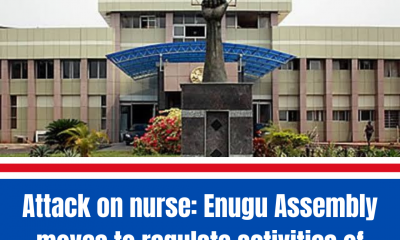
 News4 days ago
News4 days agoAttack on nurse: Enugu Assembly moves to regulate activities of masquerades
-
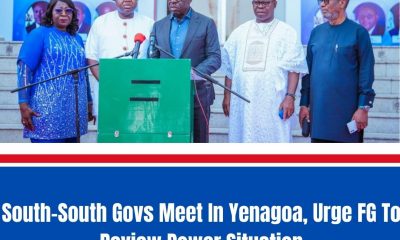
 Politics7 days ago
Politics7 days agoSouth-South Govs Meet In Yenagoa, Urge FG To Review Power Situation
-
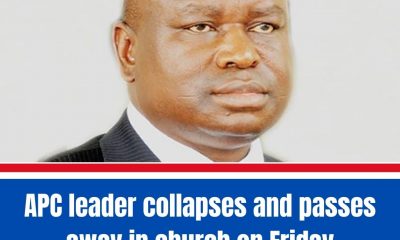
 Politics5 days ago
Politics5 days agoAPC leader collapses and passes away in church on Friday
-

 News1 day ago
News1 day agoFake Reverend Sister Arrested With 38 Children
-

 News5 days ago
News5 days agoLocal Content, Local Fraud
-
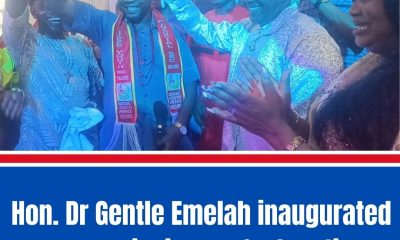
 Politics6 days ago
Politics6 days agoHon. Dr Gentle Emelah inaugurated as commissioner of education,
-

 News5 days ago
News5 days agoCourt awards N10m damages against EFCC for ‘unlawful’ publication against Christ Embassy Pastor Miebi Bribena and wife
-
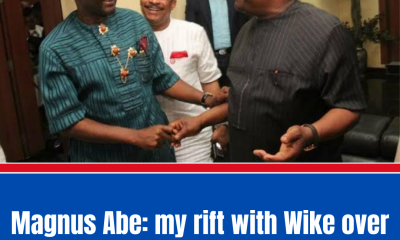
 Politics4 days ago
Politics4 days agoMagnus Abe: my rift with Wike over




